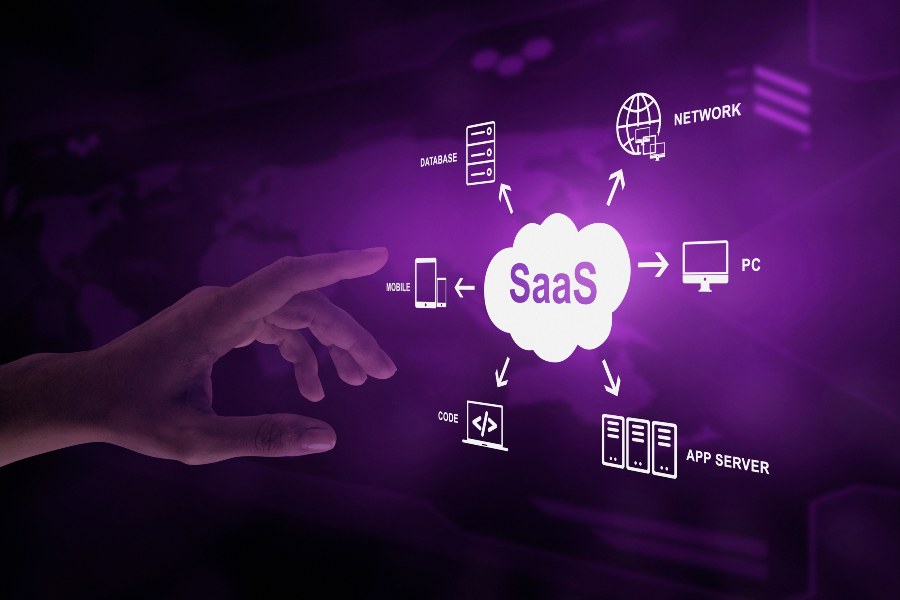
SaaS (Software as a Service) startups are rapidly gaining traction in the business world. With the shift toward cloud-based software solutions, SaaS startups are uniquely positioned to provide scalable and efficient services. However, like any startup, the path to success requires careful planning, strategic marketing, and robust development practices.
Building a successful SaaS startup involves more than just creating a software product. Startups need to address challenges such as market competition, customer acquisition, retention, and scalability. Additionally, understanding the dynamics of pricing models, technology infrastructure, and customer support is essential for sustainable growth.
In this article, we’ll cover key strategies that SaaS startups should implement to increase their chances of success, from effective marketing techniques to managing funding and scaling operations. By focusing on the proper development strategies and growth tactics, SaaS startups can build a solid foundation and accelerate their journey toward long-term profitability.
Why SaaS Startups are the Future of Technology?
SaaS startups are revolutionizing industries by offering cloud-based solutions that eliminate the need for traditional on-premise software and hardware. This shift has allowed businesses to access powerful software tools without the heavy upfront costs associated with purchasing and maintaining hardware. Instead, SaaS startups offer subscription-based pricing models, making it easier for companies of all sizes, from startups to large enterprises, to leverage advanced technology.

One of the key advantages of SaaS startups is their ability to scale quickly and efficiently. As businesses grow, SaaS solutions can easily expand to accommodate increased demand, allowing startups to add new features, integrate with other tools, and roll out regular updates—all without requiring substantial investments in infrastructure. This scalability gives SaaS startups a significant edge, enabling them to adapt swiftly to evolving market needs.
Moreover, SaaS solutions are globally accessible, making them indispensable for businesses looking to expand beyond local markets. From customer relationship management (CRM) systems to enterprise resource planning (ERP), SaaS startups provide a wide array of solutions that enable businesses to remain agile, reduce operational costs, and improve efficiency. With these benefits, SaaS startups are well-positioned to play a central role in the future of technology, driving innovation and growth across industries.
Fundamental Strategies for Marketing SaaS Startups
Marketing is key to the growth and success of SaaS startups. In a competitive market, it’s essential to implement effective strategies that drive visibility, build trust, and convert leads into loyal customers.
Targeted Content Marketing
Content marketing is one of the most effective strategies for SaaS startups. By creating valuable, educational content tailored to your target audience, you can attract organic traffic and build credibility. SEO-optimized blog posts, case studies, white papers, and webinars are excellent ways to showcase your expertise while providing valuable information to potential customers. This content not only drives traffic but also helps nurture leads through the sales funnel.
Email Campaigns and Lead Nurturing
Email marketing is a powerful tool for nurturing leads and guiding them through the customer journey. Startups can use email campaigns to keep prospects engaged, offer personalized content, and encourage conversions. Offering free trials or demos through email can also incentivize potential customers to make a purchase and experience the product firsthand.
Influencer Marketing and Partnerships
Collaborating with industry influencers and other SaaS providers can significantly extend your reach. Partnering with influencers allows startups to leverage their established credibility, exposing the brand to a wider and more engaged audience. This can build trust and credibility, crucial elements for SaaS success.
Referral Programs and Social Media Engagement
Referral programs encourage existing customers to spread the word about your service, rewarding them for bringing in new users. Additionally, leveraging social media platforms like LinkedIn, Twitter, and Facebook can help increase engagement, while paid advertising can drive targeted leads and accelerate growth.
By implementing these marketing strategies, SaaS startups can build brand recognition, foster customer trust, and efficiently generate high-quality leads.
Building a Scalable SaaS Business
In this section, we’ll explore how SaaS startups can scale their business effectively.
Scaling a SaaS business involves increasing its customer base, growing revenue, and optimizing operations. Startups need to ensure their technology infrastructure can handle growth, including adding server capacity, enhancing security, and automating repetitive tasks. Scaling also requires refining customer acquisition strategies, maintaining customer satisfaction, and expanding the product’s features to meet changing demands. By using data analytics, SaaS startups can make informed decisions on scaling, ensuring sustainable growth without compromising the quality of service.
Funding and Financial Management for SaaS Startups
This section will address how SaaS startups can secure funding and manage finances for growth.
Securing funding is often a significant challenge for SaaS startups, but there are several options to explore:
- Bootstrapping: Many SaaS startups begin by self-funding or relying on early customer revenue.
- Venture Capital (VC) and Angel Investors: Seeking VC or angel investment can provide the capital necessary to scale quickly and efficiently.
- SaaS Metrics and Financial Management: SaaS startups must focus on key financial metrics, such as Customer Acquisition Cost (CAC), Lifetime Value (LTV), and Monthly Recurring Revenue (MRR), to maintain healthy cash flow and predict future earnings.
- Cash Flow Management: Maintaining positive cash flow is essential for SaaS businesses to ensure they can cover operational costs and invest in growth initiatives.
Understanding these financial aspects is key for SaaS startups to maintain financial stability and attract potential investors.
Overcoming Challenges in SaaS Startup Development
This section will discuss common challenges SaaS startups face and how to overcome them.

- Competition: The SaaS market is highly competitive. Startups must differentiate themselves by offering unique features, excellent customer support, and a personalized approach to solving customer problems.
- Customer Retention: Retaining customers is as important as acquiring them. Startups should focus on providing value and continuous support to prevent churn.
- Technical Debt: Rapid growth often leads to technical debt. SaaS startups must prioritize sustainable coding practices and invest in future-proof technology solutions to avoid scalability issues.
- Legal Compliance: SaaS startups must ensure their software complies with industry standards and regulations, including data privacy laws such as GDPR.
By understanding and addressing these challenges, SaaS startups can increase their chances of long-term success.
In Summery
SaaS startups are reshaping the tech industry by providing businesses with cost-effective, scalable software solutions. To build and sustain a successful SaaS startup, entrepreneurs must focus on effective marketing strategies, develop scalable products, secure funding, and address key challenges such as customer retention and competition. With a clear understanding of the strategies that drive success, SaaS startups can continue to innovate and scale in a competitive market.
By investing in strong product development, solid financial management, and targeted marketing, SaaS startups can unlock their full potential and create long-term value for their customers and investors alike.
FAQ’s
What is a SaaS startup?
A SaaS startup is a company that provides software solutions through a subscription-based model, offering cloud-based software that can scale with customer needs.
How can SaaS startups attract customers?
SaaS startups can attract customers through targeted content marketing, SEO, referral programs, paid ads, and strategic partnerships with influencers.
What are the best marketing strategies for SaaS startups?
The most effective marketing strategies encompass content marketing, social media engagement, email campaigns, and utilizing SEO to attract organic traffic and generate leads.
How can SaaS startups scale their business?
SaaS startups scale by optimizing their infrastructure, expanding their customer base, improving customer retention, and enhancing their product offerings based on user feedback.
How can SaaS startups secure funding?
SaaS startups can secure funding through venture capital, angel investors, or by bootstrapping. Financial stability is also essential, so startups should focus on key SaaS metrics like CAC, LTV, and MRR.





